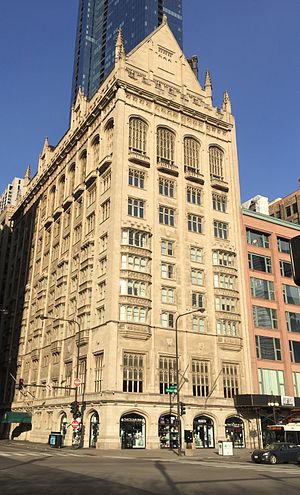
Wikimedia Commons
As Yale students engage in political discourse in the weeks leading up to the 2020 presidential election, representatives of the William F. Buckley Jr. Program reflected on the political climate and intellectual diversity on campus.
On Wednesday, the Yale Club of Chicago hosted the Buckley Program to discuss the state of intellectual diversity at Yale. The organization’s founder and current student fellows represented the program in a Zoom panel discussion. According to moderator Alexandra Newman ’05, the panel served to provide Yale alumni from a variety of graduation years with insight into the current campus political climate.
“It is very easy to graduate from Yale without being exposed to alternate viewpoints on many important issues,” Kobe Rizk ’21, the program’s student leadership board president said. “When students get that diploma, they want to feel like they can go out to the world and see the changes you want to realize. You can really only be prepared for that if you had the chance to interact with those with whom you disagree.”
The panelists first commented on what they perceived to be a lack of course offerings for students who seek a “traditional historical approach” to topics such as World War II. Emma Mueller ’21, the program’s outreach director, said that she found these courses essential to a foundational academic grounding of history before exploring alternative viewpoints that criticize these narratives.
Kevin Xiao ’23, the publication director of the Buckley Beacon — the program’s student publication — said that students who present alternative viewpoints do not always feel welcome in class.
“It just becomes a firing line of people lining up to just directly condemn, maybe not all the time you, but your ideas for sure,” Xiao said.
Mueller pointed to an instance in her “Moral Foundations of Politics” class, where her section was tasked to evaluate the “Communist Manifesto.” Mueller said that she was one of only two people in her section who was willing to challenge the notion that communism was the fairest way to distribute wealth. She emphasized the need to consider the merits of both capitalism and communism before coming to a conclusion that supports either system.
Lack of alternative viewpoints, Mueller added, also prevents those who hold them from fully expressing their own opinions.
“It becomes a self-censoring situation, not from Yale itself, but from the people around us as to whether or not to express our ideas,” Mueller said at the event.
Xiao said that he was especially worried by the impacts of the campus climate on faculty — he finds self-censorship of faculty members frightening because it makes the classroom a less intellectually challenging place.
Rizk, however, warned of the danger in crafting a narrative that victimizes conservatives on campus. He called the narrative a false claim.
“Most Yale students are happy to have that discussion with you and are not going to call you names,” Rizk said.
Rizk added that he politically disagrees with the important people in his life at Yale but said it is worthwhile to take the initiative to strike up conversations with people of different viewpoints to see how “you disagree on things.”
The panelists said that the Buckley Program — which has members who hold various ideologies — provided them with the opportunity to discuss these alternative viewpoints freely. These members’ only commonality, the panelists added, is the motivation to seek viewpoints they have not encountered before.
Rizk said that the Buckley program engages in a different approach than those taken by academic departments at Yale in recent years.
“When we talk about intellectual diversity, we only want diversity through addition,” Rizk said. “What we’re advocating for is increased opportunities for those who want to explore a different direction from your major’s intellectual journey.“
The Buckley Program was founded under the guidance of professor emeritus of classics and history Donald Kagan in 2011.
Razel Suansing | razel.suansing@yale.edu







